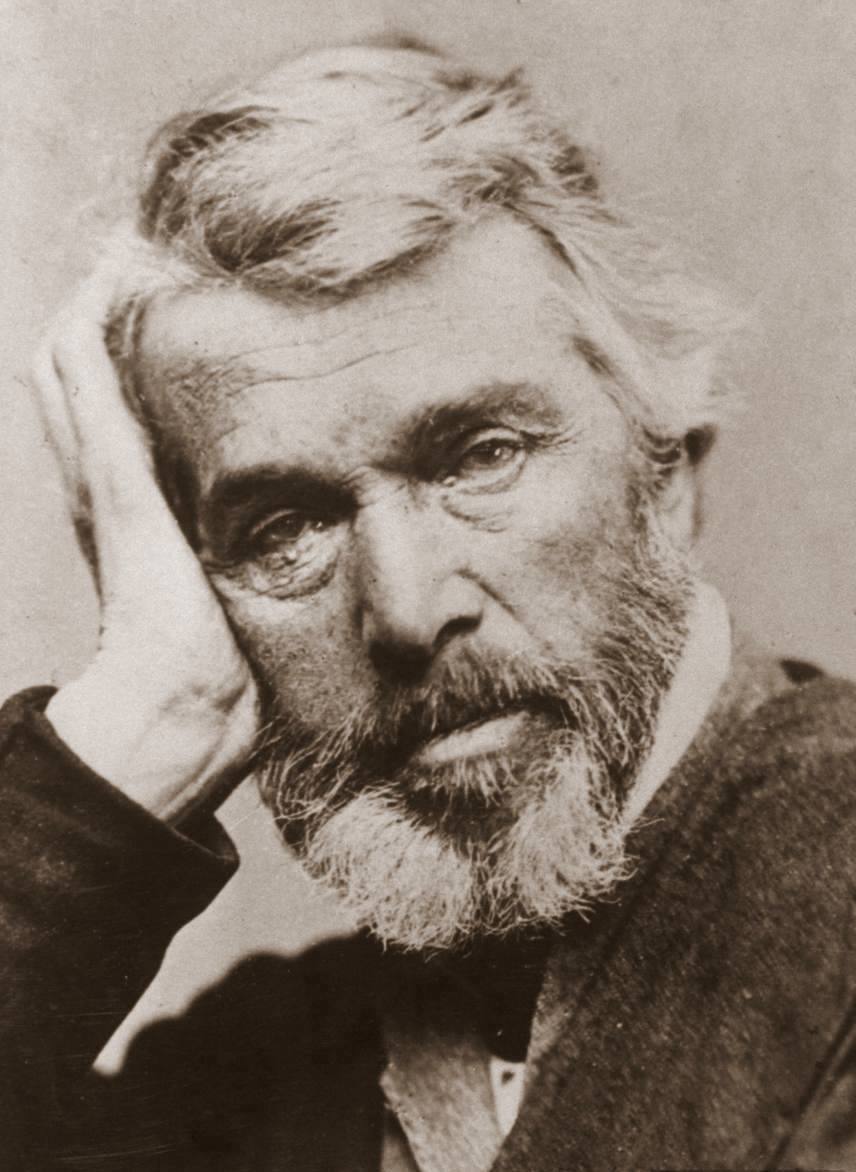1860s, On The Choice Of Books (1866)
Thomas Carlyle Quotes
1840s, Past and Present (1843)
1850s, Latter-Day Pamphlets (1850), The New Downing Street (April 15, 1850)
Bk. III, ch. 3.
1830s, Sartor Resartus (1833–1834)
1840s, Heroes and Hero-Worship (1840), The Hero as Priest
1880s, Reminiscences (1881)
1840s, Heroes and Hero-Worship (1840), The Hero as Divinity
“Clever men are good, but they are not the best.”
Goethe.
1820s, Critical and Miscellaneous Essays (1827–1855)
Variant: Clever men are good, but they are not the best.
“The work we desire and prize is not the courage to die decently, but to live manfully.”
1830s, Boswell's Life of Johnson (1832)
“For love is ever the beginning of Knowledge, as fire is of light.”
Carlyle, Essays, Death of Goethe. Quote reported in Hoyt's New Cyclopedia Of Practical Quotations (1922), p. 419-23.
1890s and attributed from posthumous publications
1850s, Latter-Day Pamphlets (1850), Stump Orator (May 1, 1850)
1840s, Heroes and Hero-Worship (1840), The Hero As King
“The barrenest of all mortals is the sentimentalist.”
Characteristics.
1820s, Critical and Miscellaneous Essays (1827–1855)
“His religion at best is an anxious wish, — like that of Rabelais, a great Perhaps.”
Burns; compare: "The grand perhaps", Browning, Bishop Bloughram's Apology.
1820s, Critical and Miscellaneous Essays (1827–1855)
“A word spoken in season, at the right moment, is the mother of ages.”
Reported in Josiah Hotchkiss Gilbert, Dictionary of Burning Words of Brilliant Writers (1895), p. 561.
1890s and attributed from posthumous publications
1820s, Signs of the Times (1829)
Bk. II, ch. 4.
1830s, Sartor Resartus (1833–1834)
1850s, Latter-Day Pamphlets (1850), Model Prisons (March 1, 1850)
1850s, Latter-Day Pamphlets (1850), Stump Orator (May 1, 1850)
Source: 1840s, Chartism (1840), Ch. 6, Laissez-Faire.
1850s, Latter-Day Pamphlets (1850), The Present Time (February 1, 1850)
1840s, Past and Present (1843)
1840s, Heroes and Hero-Worship (1840), The Hero as Prophet
1820s, Signs of the Times (1829)
1880s, Reminiscences (1881)
1830s, Boswell's Life of Johnson (1832)
1880s, Reminiscences (1881)
1850s, Latter-Day Pamphlets (1850), Downing Street (April 1, 1850)
1840s, Heroes and Hero-Worship (1840), The Hero as Man of Letters
1840s, Heroes and Hero-Worship (1840), The Hero as Prophet
“The eye of the intellect "sees in all objects what it brought with it the means of seeing."”
Varnhagen von Ense's Memoirs.
1820s, Critical and Miscellaneous Essays (1827–1855)
“The All of Things is an infinite conjugation of the verb To do.”
Pt. II, Bk. III, ch. 1.
1830s, The French Revolution. A History (1837)
1840s, Heroes and Hero-Worship (1840), The Hero as Prophet
“Do nothing, only keep agitating, debating; and things will destroy themselves.”
Pt. I, Bk. VI, ch. 3.
1830s, The French Revolution. A History (1837)
1840s, Past and Present (1843)
(Often shortened to "can't stand prosperity" as an unknown quote).
1840s, Heroes and Hero-Worship (1840), The Hero as Man of Letters
1880s, Reminiscences (1881)
1840s, Heroes and Hero-Worship (1840), The Hero as Man of Letters
1840s, Past and Present (1843)
Bk. III, ch. 8.
1830s, Sartor Resartus (1833–1834)
1880s, Reminiscences (1881)
1840s, Heroes and Hero-Worship (1840), The Hero as Divinity
1880s, Reminiscences (1881)
1850s, Latter-Day Pamphlets (1850), The Present Time (February 1, 1850)
1850s, Latter-Day Pamphlets (1850), The New Downing Street (April 15, 1850)
Essays, Goethe's Works.
1820s, Critical and Miscellaneous Essays (1827–1855)
Letter to Goethe, (1828).
1820s, Critical and Miscellaneous Essays (1827–1855)
1850s, Latter-Day Pamphlets (1850), The Present Time (February 1, 1850)
